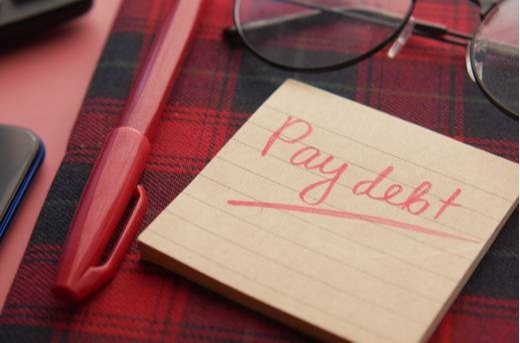Carrying excessive debt is both a financial and emotional burden. Along with the additional stress it can cause in your life, it can also cost you more money in interest and delay progress toward your financial goals. Especially with high interest debt such as credit cards, student loans or a home equity loan or line of credit, the longer it takes you to pay off the balance, the more you will spend on interest. Therefore, the quicker you pay off your debt, the lower the amount of interest you’ll accrue, reducing the funds you’ll need to satisfy the balance. This leaves you with more money to put toward your other financial goals. Furthermore, by reducing debt, your credit score should improve and if your financial goals require good credit scores, such as purchasing a home, paying off your debt should be a priority.
Even a $5,000 loan can generate a significant amount of interest if not paid down aggressively. By paying only the minimum amount due on a balance, the debt could span a period of ten years. When accruing at an interest rate of 17%, the amount of interest could reach $2,627. The interest cost of the loan is more than half of the loan amount! In some cases, you may end up paying far more in interest than the cost of the loan or purchase. Probably not the wisest financial strategy.

To ease your debt burden, start developing a payoff strategy to put you back on the road to achieve your financial goals. By changing a few habits, you can tackle outstanding balances in a deliberate manner. Here are some tips on reducing debt:
- Make a budget and track expenses
With a focus on fixed expenses, compile a budget for all expected expenses, and track spending on a monthly basis relative to the budget. This will heighten your awareness of income and spending and may help to eliminate or reduce unnecessary spending. - Avoid more debt
While working to pay down or pay off debts, avoid unnecessary purchases. Adding more debt will make managing debt more difficult. - Pay bills in full and on time
Paying your bills in full and on time will allow you to avoid high interest rates and late fees. If you are unable to pay the full amount, at least try to pay more than the minimum in order to reduce the interest accrued and any late fees. - Review bills and statements carefully
Review bills and statements from vendors, utility companies, and credit card providers carefully to ensure they are accurate. If there are any errors or other unexplained assessments, including interest rate increases, call the company or lender to have them correct the issue. - Pay off high-interest debts first
If you have multiple loans or bills to pay, target those with the highest interest rates and fees first. This will have the more impact toward reducing the amount of money you owe in the long run. - Reduce your number of credit cards
Consider having only a few credit cards to manage ongoing debt, ensuring they have the lowest annual percentage rate (APR) available. - Look for best interest rates when consolidating
By obtaining a debt consolidation loan from a bank or credit union, you may be able to get a lower interest rate and may be able to manage your debts more easily by making one payment to the bank rather than several payments to lenders. - Other assistance: contact creditors
Speak directly to the companies to which you owe money. They may be willing to set up a repayment schedule that is more realistic for your budget and reduce monthly payments.
Once you've reduced or paid off your balances, be vigilant about not incurring debt again. Consider phasing out credit cards and using debit cards or cash instead. Turn your attention toward other financial goals, such as building an emergency fund or increasing retirement savings.
To Save or Not to Save…
While paying off your debt, it might make sense to you to delay building your savings. But, since saving is usually another high priority, it may be prudent to portion out funds for this goal as well. The advantages of tackling both debt reduction and savings simultaneously include:
- The sooner saving begins, the greater the opportunity to take advantage of compounding interest.
- Deferring saving until debt is paid down restricts progress on this important long-term goal.
- Building some easily accessible savings can assist with avoiding new debt in the event of unexpected expenses.
Carrying debt over the long term isn't ideal, since it can cost more money in interest and hinder progress toward your financial goals. At the same time, it isn’t prudent to wait to save, either. When deciding whether to pay off debt or save money, the best approach may be a balanced one that includes both. Then, once you’ve paid off your debt, you can more aggressively build your savings by contributing to your savings the amount you were using to pay toward your debt.



